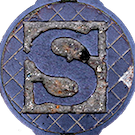Project Ideas: Difference between revisions
(→Linked Data Publishing On Activitypub: new section) |
|||
| (7 intermediate revisions by 5 users not shown) | |||
| Line 1: | Line 1: | ||
== Linked Data Publishing On Activitypub | == [[Translate Logseq Knowledge Graph to Systems Biology Network Diagrams]] == | ||
lead: [[Akila Wijerathna-Yapa]] | |||
= [[Linked Data Publishing On Activitypub]] = | |||
{{Message | {{Message | ||
| Line 24: | Line 27: | ||
I can help try and clear some of the groundwork out of the way to make it easier for you and other interested participants to experiment. I have asked around fedi a bunch for a very minimal AP server implementation, and I could try and find one (or we could try and prototype one) if you want to experiment with that :), and I can also document and show you a tweepy-based bot that has an extensible command/parsing system too | I can help try and clear some of the groundwork out of the way to make it easier for you and other interested participants to experiment. I have asked around fedi a bunch for a very minimal AP server implementation, and I could try and find one (or we could try and prototype one) if you want to experiment with that :), and I can also document and show you a tweepy-based bot that has an extensible command/parsing system too | ||
|Link=https://discord.com/channels/1029514961782849607/1037786518800039978/1037861609885925467 | |Link=https://discord.com/channels/1029514961782849607/1037786518800039978/1037861609885925467 | ||
}} | |||
= [[Making Discourse Graphs Indexable & Discoverable]] = | |||
= [[Federated knowledge synthesis]] = | |||
{{Message | |||
|Author=Konrad Hinsen | |||
|Avatar=https://cdn.discordapp.com/avatars/499904513038090240/343ae17c322fa09b3260f95e58bc4f29.png?size=1024 | |||
|Date Sent=22-11-11 05:45:14 | |||
|Channel=Thanks sneakers the rat2880 Your site is | |||
|Text=I'll try to turn this thread into [[Project Ideas#Federated knowledge synthesis]]: identify protocols, data models, tools, practices, etc. that can support the process of synthesizing and formalizing scientific knowledge, then build on these ingredients. One dimension is going from narratives via discourse graphs to knowledge graphs. Another dimension is going from conceptual ideas to formal systems. | |||
|Link=https://discord.com/channels/1029514961782849607/1040360259413348432/1040502446943899668 | |||
}} | }} | ||
Latest revision as of 08:04, 11 November 2022
Translate Logseq Knowledge Graph to Systems Biology Network Diagrams
lead: Akila Wijerathna-Yapa
Linked Data Publishing On Activitypub
Project Ideas#Linked Data Publishing On Activitypub
ooh I'm very interested in this. so are you thinking a Twitter#Bridge -> ActivityPub#Bridge where one could use markup within the twitter post to declare Linked Data#Markup Syntax and then post to AP? I have thought about this kind of thing before, like using a bot command syntax to declare prefixes by doing something like ``` @ bot prefix foaf: https:// (ontology URL) ``` or ``` @ bot alias term: foaf.LongerNameForTerm ``` so that one could do maybe a semantic wikilink like `[ [term::value] ]` either within the tweet or as a reply to it (so the tweet itself doesn't become cluttered/it can become organized post -hoc?).
I've also thought about a bridge (I called Threadodo ) that implements that kind of command syntax to be able to directly archive threads to Zenodo along with structured information about the author, but this seems more interesting.
I can help try and clear some of the groundwork out of the way to make it easier for you and other interested participants to experiment. I have asked around fedi a bunch for a very minimal AP server implementation, and I could try and find one (or we could try and prototype one) if you want to experiment with that :), and I can also document and show you a tweepy-based bot that has an extensible command/parsing system too
Making Discourse Graphs Indexable & Discoverable
Federated knowledge synthesis
I'll try to turn this thread into Project Ideas#Federated knowledge synthesis: identify protocols, data models, tools, practices, etc. that can support the process of synthesizing and formalizing scientific knowledge, then build on these ingredients. One dimension is going from narratives via discourse graphs to knowledge graphs. Another dimension is going from conceptual ideas to formal systems.
